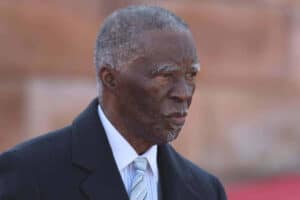Experts said the Khumalo purge on the grounds of “working with the enemy” would have limited political effect on MK growth.

Although the expulsion of uMkhonto weSizwe party (MK) founder Jabulani Khumalo and other top leaders has fuelled factionalism within the ranks of the fledgling organisation, political analysts yesterday downplayed any crippling impact this might have on support in the build-up to general election.
Despite Khumalo registering the party with the Electoral Commission of South Africa last September, MK only came into prominence when Zuma confirmed he was dumping “the ANC of Ramaphosa” and would campaign for the new party.

LIVE interactive map, latest news, multimedia and more!
View MapALSO READ: ‘Strategically, Zuma still has upper hand’ in drama between MK and ANC
Experts said the Khumalo purge on the grounds of “working with the enemy” would have limited political effect on MK growth amid fears the development could lead to leadership instability.
Political analyst with the University of KwaZulu-Natal Zakhele Ndlovu said MK’s mass support solely centred on party leader Jacob Zuma’s popularity and cult of personality.
“MK party supporters are Zuma’s followers, while Khumalo is a virtual unknown without any constituency. Without Zuma, there is no MK party.
“It is not a coincidence that MK is only big in KZN, a predominantly Zulu province.
“Zuma has successfully played the ethnic card dating back to the ‘100% Zulu boy’ slogan when he contested against Thabo Mbeki for the ANC presidency in Polokwane,” said Ndlovu.
Independent political analyst Sandile Swana likened Zuma to Zion Christian Church (ZCC) leader Bishop Barnabas Lekganyane.
“From the beginning, we have accepted Zuma to be the leader of MK,” he said.
“Khumalo does not have the personal support that Zuma has. There is no politician in South Africa commanding personal support like Zuma. [He] has no equal.
“He is almost like the ZCC’s Lekganyane of SA politics, with a guaranteed support from his followers,” said Swana.
“The dissatisfaction of Jabulani Khumalo and his supporters is to be understood in the context of what we have seen in other parties like ActionSA, EFF [the Economic Freedom Fighters] and Cope [Congress of the People].
“But what you need to understand is that both Zuma and Khumalo come from the same political tradition, an organisation that has been plagued by factionalism and divisions since the 1990s.
“The culture of factionalism is embedded within MK and the ANC.”
WATCH: ‘ANC will survive impact of Zuma and MK party’ – Mabuza
Prof Dirk Kotzé of the University of South Africa cited “an uneven balance within the party, between Zuma and Khumalo”.
“In comparative terms, Zuma is the most powerful and prominent figure within the MK party… Khumalo and his comrades may try to regain lost ground, but will find it hard to win.
“This is different to what we have seen in Cope or the ANC. Despite there being disgruntled people in the background, that will not stop the functioning of the MK party.
“This type of factionalism is not based on ideology or policy, but based on people seeking opportunities. It is rather infighting for positions,” said Kotzé.
University of Pretoria politics lecturer Roland Henwood, disagreed: “In this case, leadership instability is a given – key being what the impact this will have, especially this close to elections.
“We have seen similar problems in Cope and how this phenomenon impacted on the ANC leadership over time.”
An Ipsos opinion poll has predicted MK will get up to 8.4% of the national vote and the ANC could drop to about 40.2%.
The survey suggested MK could secure upwards of 20% in KZN, reducing the ANC’s national vote share in the region by five percent






